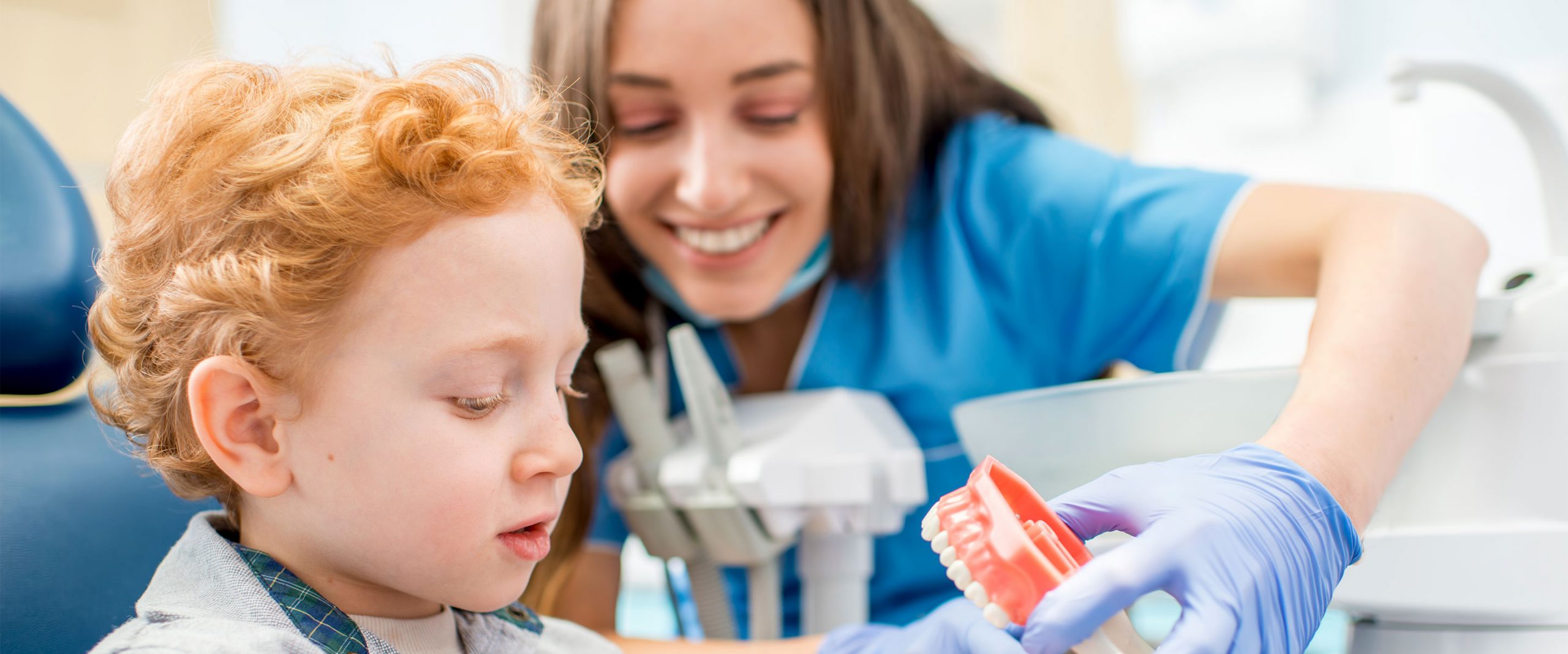Pediatric dentistry is a dental practice recognized by the American Dental Association and encompasses comprehensive dental care for all children, from infancy through adolescence.
At Just For Kids Pediatric Dentistry, we strive to make each visit fun, educational, and meaningful for you and your child!
The Pediatric Dentist
Pediatric dentistry is the specialty of dentistry that focuses on the oral health of young people. After completing a four-year dental school curriculum, two to three additional years of rigorous training are required to become a pediatric dentist. This specialized program of study and hands-on experience prepares pediatric dentists to meet the needs of infants, children and adolescents, including persons with special health care needs.
We are concerned about your child’s total health care. Good oral health is an important part of total health. Establishing us as your child’s Dental Home provides us the opportunity to implement preventative dental health habits that keep a child free from dental/oral disease. We focus on prevention, early detection and treatment of dental diseases, and keep current on the latest advances in pediatric dentistry.
Pleasant visits to the dental office promote the establishment of trust and confidence in your child that will last a lifetime. Our goal, along with our staff, is to help all children feel good about visiting the dentist and teach them how to care for their teeth. From our special office designs to our communication style, our main concern is what is best for your child.
Learn more about Pediatric Dentistry and preventing tooth decay by downloading the brochure below.
Download the Pediatric Dentistry Brochure
Infant Care
Gums
After breast or bottle feeding, wrap one finger with a clean, damp washcloth or piece of gauze and gently rub it across your baby’s gum tissue. This clears away any remaining milk or formula and begins building daily oral care habits.
Thumb Sucking
Most children begin sucking their thumbs or fingers from a very young age, often inside the womb. Sucking is a natural reflex for an infant and provides a sense of security. It can also help children relax, which is why many children suck their thumbs as they fall asleep.
How does your child suck his or her thumb? If the sucking is passive, with the thumb gently resting inside the mouth, it is less likely to cause damage in terms of tooth position and jaw shape. However, aggressive sucking that places pressure on the mouth or teeth may cause problems with tooth alignment and proper mouth growth. Extended sucking can affect teeth and even the shape of the face, often requiring future orthodontic treatment to correct.
According to the American Dental Association, most children stop thumb sucking on their own between the ages of two and four. If your child is still sucking when permanent teeth start to erupt, he or she may need help to break the habit. Always remember your child needs support and understanding during the process; breaking habits is hard!
If you’re worried about how your child’s thumb sucking may be affecting his or her oral health, we are happy to help access the situation and provide suggestions to help break the habit. We also offer a pacifier take-back program and recommend losing pacifiers by age two. Prolonged use of a pacifier can lead to the same complications associated with thumb sucking.
First tooth & introducing toothpaste
When your child’s first tooth appears, upgrade to a soft bristle baby toothbrush. Choose a long-handled toothbrush that you and your baby can hold at the same time. You can introduce a small amount of fluoridated toothpaste at this time, in a quantity no larger than a grain of rice.
Avoiding cavities
Do not give your baby sweetened liquids, including flavored drinks or soda. Prolonged contact between teeth and sugary liquids will cause early-childhood decay, also called baby-bottle caries. Even the sugars present in fruit juice, formula, and milk (breast milk as well) can cause decay over time, so regular teeth and gum cleaning is important.
First visit to the dentist
Bring your baby in for a visit within six months of the first tooth’s eruption, usually around his or her first birthday. It is recommended by the AAPD that children visit the dentist by age one. We’ll look for any signs of early problems with your baby’s oral health and discuss the best way to care for your little one’s teeth.
Tethered Oral Tissue
Tethered oral tissue refers to any tissue restricting functional movement in the mouth and most often refers to tongue, lip, or cheek ties. A tie is when the connective tissue under the lip, cheeks, or tongue is tight, short, thick, or in any way restrictive to normal function or movement. The presence of a frenum or even the appearance of restriction does not always indicate there is a tie. There are symptoms to look for that may indicate tethered oral tissue, but not every baby has every symptom, and not every symptom indicates a tie. A functional analysis is needed to determine next steps. If you have questions about a possible tie, please call our office and we will be happy to talk with you.
Common tethered oral tissue symptoms:
- Pain or discomfort associated with nursing
- Gas
- Frequent hiccups
- Reflux
- Frequent thrush
- Clogged ducts, engorgement, or mastitis
- Leaking milk while at breast or bottle
- Excessive spit up
- Frequent nighttime waking
- Falling asleep during feeds and waking up hungry
- Colic
- Overly fussy
- Clicking while eating
- Trouble transitioning to solids
- Choking or gagging
- Shallow latch
- Weight issues including loss or slow to no gain
- Popping on and off bottle or breast to latch
- Fussy while eating
- Arching
- Nipple damage
- Chewing or biting breast or bottle
- Picky eating
- Refusal of certain textures

